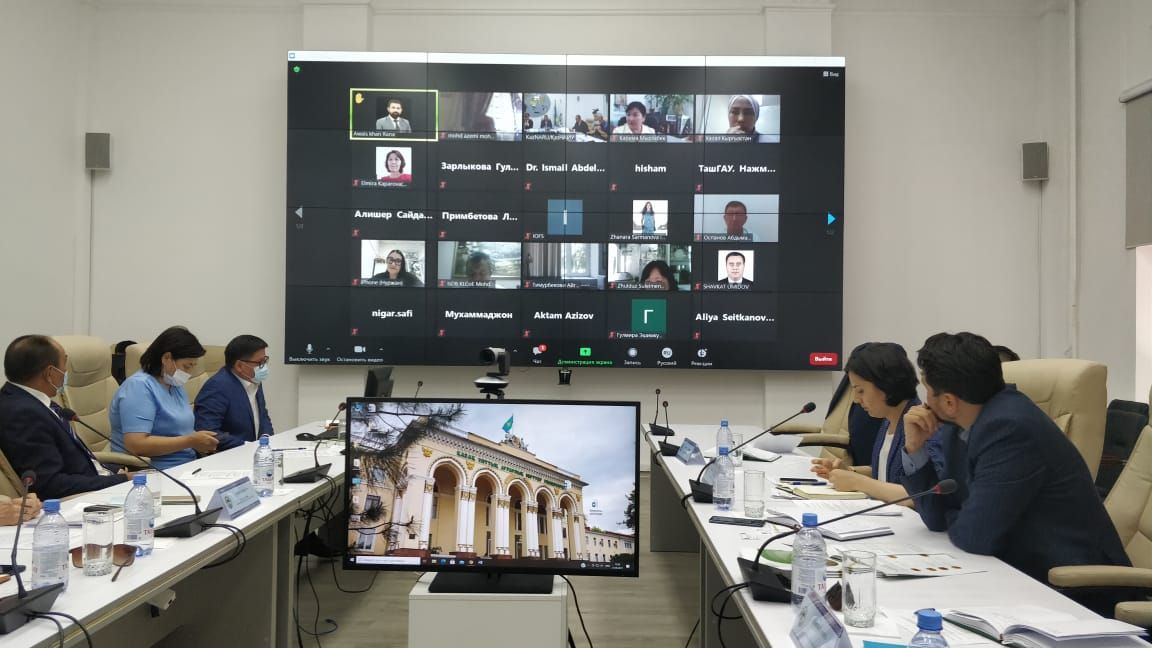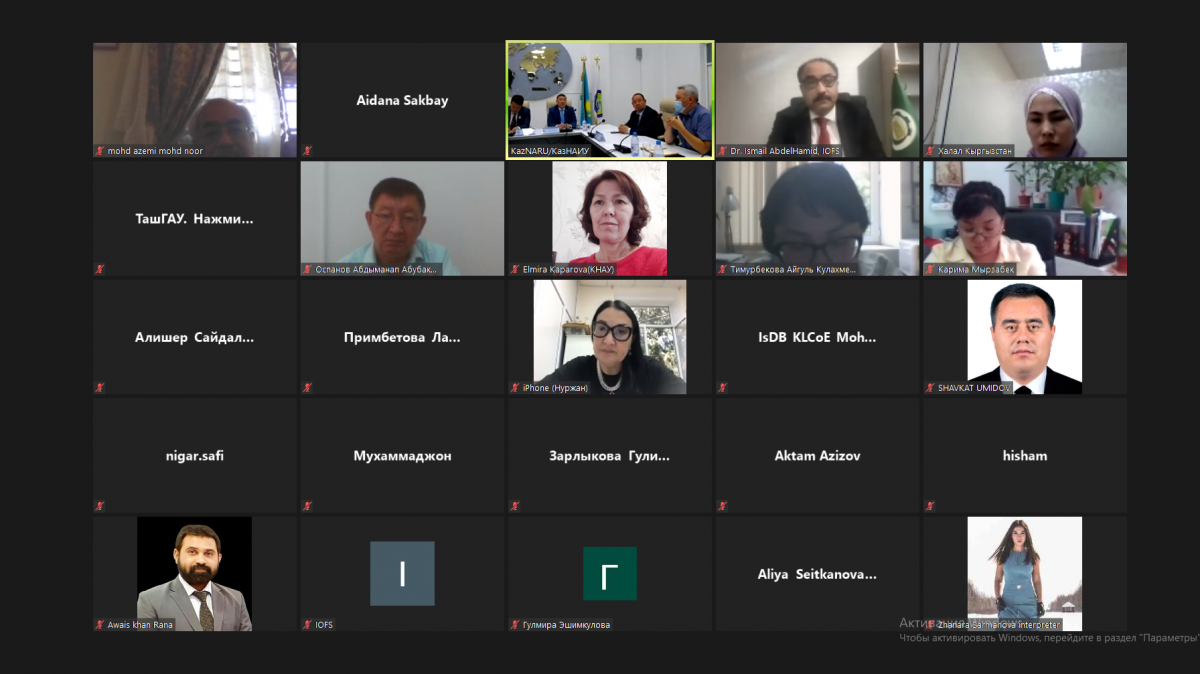The Islamic Organization for Food Security (IOFS) presented its “Gene to Fork” concept for review by halal and food safety experts on June 21 in Almaty, Kazakhstan. The meeting was organized jointly by the IOFS and Kazakh National Agrarian Research University (KazNAU) under the programme “Food Safety - Halal Food”.
The IOFS Director-General H.E. Yerlan Baidaulet stated, “It’s important to recognize that food safety and halal concepts are inextricably linked. Halal standards are integral to food safety laws in many Muslim countries”.
A representative of KazNAU confirmed its readiness to collaborate with other specialists in the field of food safety and food security and expressed confidence that the cooperation would yield good results.
The Spiritual Administration of Muslims of Kazakhstan observed that halal foodstuffs have been gaining popularity among the general population as natural/organic production and humane animal treatment, the hallmarks of halal, are currently in high demand.
The first session addressed the innovative concept of IOFS, “from Gene to Fork”. The concept promotes a food production process that fully excludes components and/or manufacturing methods that do not comply with the halal standards, starting at the gene/seed level. The IOFS program that elaborates this concept focuses on close cooperation with food producers to enable experience exchange, decrease risks of food-borne illnesses, provide expertise on production, management and storage of foodstuffs, promote halal food standards and export halal food products.
The current state and perspectives of food safety in Central Asia were a central focus of the second session. The experts noted general public distrust of halal labels arising from lack of true halal experts, weak enforcement of food safety laws and incompetent certification organs.
In the third session, the experts discussed the correlation between the standards of food safety and halal. According to the halal standards, the food must be produced and processed using natural and humane methods that minimize animal suffering and exclude harmful components. Such standards are widely incorporated in a number of Muslim countries; however, they have not reached Central Asia yet. When it comes to imported products, it is even more difficult to track their processing methods and ensure their compliance with halal.
The event also raised an interesting question about the conflicting values between the local cuisine and halal teachings. Islam is practiced in many different countries around the world, and the local traditional food does not automatically fall under the category of halal.
The participants concluded that the discussions were fruitful and helped to build a better understanding of the halal principles. It was determined that the IOFS will continue to organize the next expert sessions with KazNAU, and each would explore a specific theme related to halal issues. The IOFS together with the experts will start preparing a conceptual foundation for the “From Gene to Fork” idea. The event was conducted in a hybrid work format with the participation of international experts from Pakistan, Egypt, Malaysia and Kyrgyzstan.








